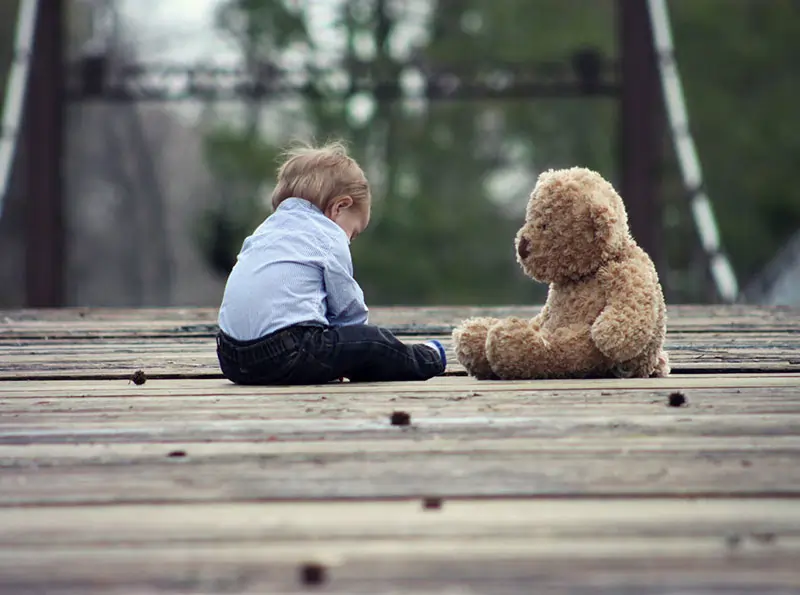Simple Rules to Help You Deal with Negative Child Behavior
 Negative Child Behavior: Parents commonly complain about their kids driving them up the wall. In other words, they constantly emphasize on their negative behavioral patterns. Parents feel that by identifying their sibling’s negative behavior, they can get it corrected. Obviously, all parents feel that such a behavioral pattern is a natural phenomenon with parents. Parents are human and it is justifiable that they tend to doing this for the child’s good, and it will invariably help the child in improving their chances of long-term survival in a difficult world.
Negative Child Behavior: Parents commonly complain about their kids driving them up the wall. In other words, they constantly emphasize on their negative behavioral patterns. Parents feel that by identifying their sibling’s negative behavior, they can get it corrected. Obviously, all parents feel that such a behavioral pattern is a natural phenomenon with parents. Parents are human and it is justifiable that they tend to doing this for the child’s good, and it will invariably help the child in improving their chances of long-term survival in a difficult world.
Anxiety is a normal emotional state that all parents experience during various stages of parenting. However, the major problem is that we spend most of our time trying to fix and shape our kids up into what WE THINK that they should be, rather than who they actually are. Inadvertently, we tend to miss the positives of who they actually are. This can be quite damaging, but the good side is that you get to have to look at the balanced picture, if you can identify both the negatives and the positive behavioral patterns. In other words, you get a more accurate behavioral pattern of your child. Once that is done, lock it up, because if you constantly analyze your child, his behavioral patterns will mutate. Mentioned below are few parenting tips to get you started.
Putting a stop to fear based parenting is necessary for all parents.
When tension or anxiety increases, parents tend to examine areas that they fear, and then begin to treat it as if it is real. People tend to remember the laid back parenting style of the past. We remember the time spent outdoors (there were no Facebook and smartphones those days) and drinking tap water. In short, the difference between parenting of the past and present is that worry and fear seem to take center stage today.
If this becomes a habitual way of responding to your kid’s behavior, instead of helping them learn how to deal with others more appropriately, you may inadvertently help create more of the same in them. We make it into a problem to worry and lose sight of the logical and actual. When this happens, as mentioned earlier, traits mutate and even positive traits can become negative ones. In other words, parents should be trying to empower their kids, rather than finding faults with their behavior.
Being calm with your child, no matter the situation.
As discussed earlier, we tend to turn positive traits into negatives, and it is no surprise that parents are often unable to see the good traits buried within the annoying behaviors that drives them crazy. Parents do not like it when kids go against their orders by disagreeing with what they wanted them to do. When they say no or refuse to do, what they ask, it annoys parents and they label their behavior as negative. Although parents may have to mutually discuss their refusal to comply, the so-called negative characteristic is not necessarily a bad thing.
Parents want their kids to grow up and be responsible, independent adults. The opposition trait that parents occasionally see in their child can translate to a kid who is not afraid to say no to his peers. It can also be viewed as a child who has strong leadership skills. Your job as a parent is to direct this energy in the correct direction, and set limits through proper parenting principles. Of course, parents also have to maintain the lines of communication open with their kids.
Seeing the positive in your kid’s behaviors makes it easier to view things more optimistically. Obviously, you do not have to give your child his way, but it is helpful to try to step back and see his assertion from a more positive frame of mind.
Try to parent the child you have, rather than wishing for the child that you never had.
Whenever you begin to start focusing on your kid’s negative traits, write down a few of their positive traits. View traits from a different angle. For example if a child is overly sensitive, note the positive, their sympathetic nature. If the child is argumentative, note the positive, their assertive self.
The key is to note the positive side of any negative trait, and then help them in channeling it positively. Try to help and move the aggressive behavior to a more assertive one. Also, have open conversations on how to manage things properly if such a situation arises again. Remember, that your child’s assertiveness is very useful in the real world, as long as they can channel it properly. The parents’ real job is to guide them and help teach them how to do that.
Visualize yourself in your child’s place.
Try and analyze every behavior that makes you lose your temper, and ask yourself what you need to understand about it. To do this, you will need to step into his or her shoes for a moment. With this new understanding, you will be able to see the behavior with less anxiety.
How to give consequences that tweak your child behavior.
There must have been instances when you have worried about what others thought about you. What did you do then? Now try to put yourself in the shoes of a teenager. You might find it literally impossible, despite the fact that even you, had gone through that phase. Understanding their behavior does not mean you should give in. It just means that you can empathize with your child, and see the reason for their anger.
Do not take anything personally. Sympathize and calm down before discussing limits about their behavior, as this will help you in understanding that some of your child’s negative behaviors are quite normal. This can also help you depersonalize what they are doing and see the big picture a little more clearly. The bottom line is that you may not like their behavior, but at least you will be able to see it for what it is, and not take it personally.
It is okay to feel more positive about others when they say that your children are like you. Differences might make us uncomfortable, but different does not necessary mean it is tantamount to negative behavior. If you feel that your child is different from you, view this positively while acknowledging the difference. Lastly, move on!
As a closing line, just remember, anxiety is contagious, but so is calm.
Coping with negative behavior in children


One Comment